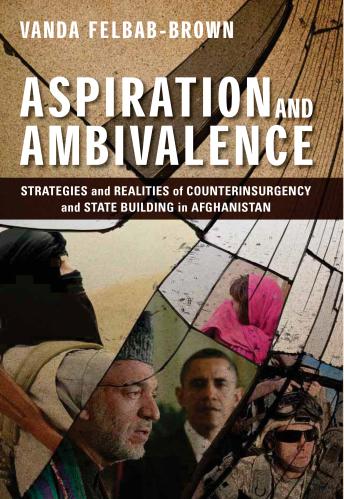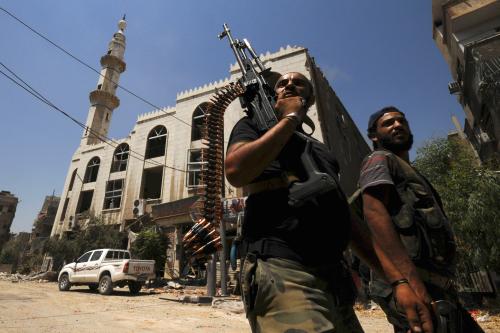There’s a broad consensus in the analytical community that the Islamic State’s legitimacy would be damaged if it lost its government—the only debate is over how much. A state without a state would be a laughingstock, the argument goes, which I agree with in the main. But if the group’s previous incarnation is any indication, the laughter will be a long time coming—perhaps as long as a generation.
The Islamic State suffered ridicule for its outsized ambitions early on. When the leader of al-Qaida in Iraq dissolved the organization and proclaimed the establishment of the Islamic State of Iraq in 2006, jihadis scoffed. How could a rebel group that controlled little territory possibly convince anyone that it was an actual state? The Islamic State’s rejoinder that it was a state because it was trying to behave like a state fell flat.
You might anticipate that the Islamic State’s credibility in jihadi circles would have suffered irreparably when the group was defeated as an insurgency in 2008. But strangely, its popularity soared. The group kept itself in the news by launching spectacular terrorist attacks in Iraq so its fans wouldn’t lose heart. It promised to “endure” against all odds. And as I document in my book, other al-Qaida affiliates took up its flag and its state-building ambitions, which kept hope alive. By the time the Islamic State got a second bite at the state-building apple with the civil war in Syria and the drawdown of American troops in Iraq, the Islamic State’s cause was wildly popular in jihadi circles and thousands left their homes to fight under its banner.
Faced with the loss of its so-called caliphate today, the Islamic State has not adopted the absurd know-nothing analysis of “Baghdad Bob” during the American invasion of Iraq. Rather, its spokesman has frankly acknowledged that the Islamic State may lose all its land. But he promises it will return. Given the group’s recent history, it’s not an empty promise.
Even if the Islamic State doesn’t immediately recover from the demise of its government, it will be buoyed for years to come by spectacular attacks abroad and by its earlier state-building success. No other Sunni group has credibly claimed to reestablish the caliphate in its historic heartland since the demise of the institution in the 1920s. As an editorial in the Islamic State’s newsletter put it, the State’s enemies will have to wait “till an entire generation of Muslims that was witness to the establishment of the Islamic State and the return of the caliphate, and that followed the story of its standing firm against all the nations of unbelief, is wiped out.” In other words, if the group is denied another chance to build a state for a generation, it will no longer command the enthusiasm it now enjoys. Until then, its enemies have little cause for rejoicing at the demise of the Islamic State’s state.
The Brookings Institution is committed to quality, independence, and impact.
We are supported by a diverse array of funders. In line with our values and policies, each Brookings publication represents the sole views of its author(s).











Commentary
Don’t celebrate ISIS setbacks too soon
August 9, 2016